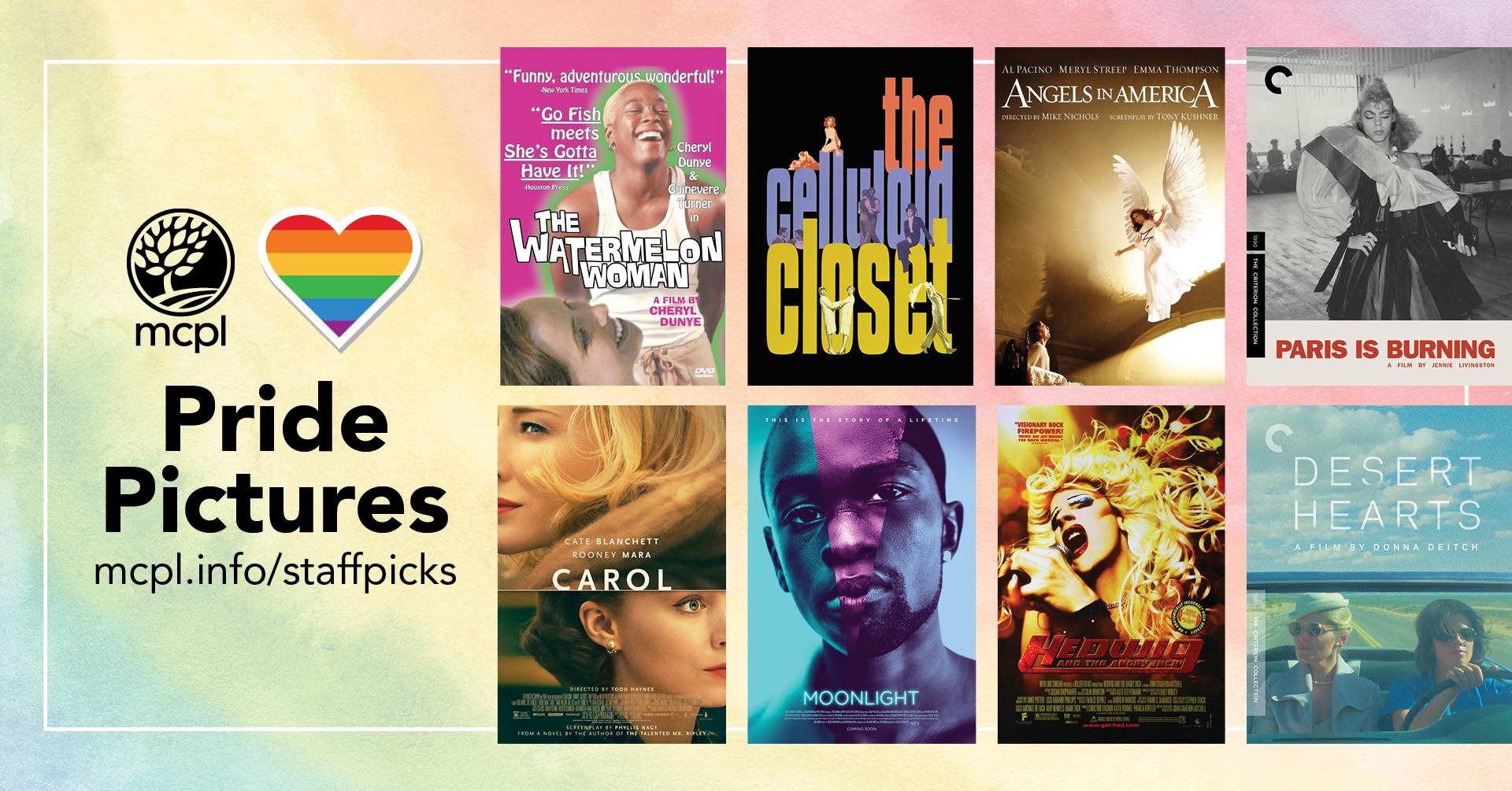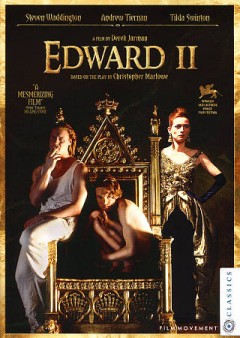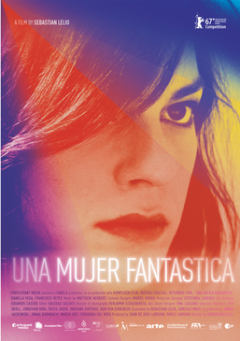Like many Otto Preminger films, this pushed against censorship and the Production Code by including a subplot about a U.S. Senator who is blackmailed over an alleged homosexual affair (The Best Man, written by Gore Vidal, also similarly uses this negative plot point). This political drama is notable for being the first Hollywood film known to feature a gay bar on screen.
This long-awaited adaptation of the multi-award-winning stage play, by original writer Tony Kushner, fantastically examines the AIDS epidemic in 1980s Reagan-era America.
While this adaptation of the revered 1979 stage play may lose some of its minimalist gravitas in its expanded adaptation to film here, it is a story that helped brining the pink triangle of the Nazi concentration camp to public consciousness.
Director/co-writer Robin Campillo draws upon his personal involvement with the activist group ACT UP Paris to tell a story of those that fought to demand government action against the AIDS epidemic in France in the early 1990s.
Despite being reduced by some critics to 'that gay cowboy movie', this film is regarded as a breakthrough in bringing Hollywood's depiction of non-heterosexual relationship into the mainstream. The refusal to label its characters' sexuality brought some controversy, but this also perhaps allowed for a more complex portrayal of our spectrum.
See also, the more recent English film, God's Own Country.
Based on Patricia Highsmith's semi-autobiographical novel, The Price of Salt, this is a story of an affair between two women in the early 1950s. This elegantly photographed film chooses to say very little in its dialogue, allowing us to visually take in the feeling between these two very different women in all of its exquisite period detail.
This one-time definitive 1996 documentary, on the 100 year history of the role of gay men and women of the silver screen, shows examples of 'coded' gay characters and numerous cruel stereotypes, while also highlighting historical pushes against censorship and the rising activism for better representation in the 1990s. Based on the Vito Russo book of the same name (whose name has been given to the GLAAD Vito Russo Test).
A retrospective curiosity for how Hollywood attempted, after recent relaxations in the Production Code, to adapt the 1934 Lillian Hellman stageplay about two school teachers that are accused of a lesbian affair by an angry student (A previous film version, These Three, had changed this to a heterosexual affair with the other's fiance). Not entirely successful, and certainly not a positive depiction, yet it stands as an early example of introducing mainstream audiences to this kind of prejudice.
Generally regarded as one of the first wide-release films with a positive portrayal of lesbian relationships; more specifically, Donna Deitch became the first lesbian writer/director to have a lesbian sex scene seen by general, American movie theater audiences. Bi-sexual, silent film star Greta Garbo (of whose gender-fluid performance in Queen Christina is notable) was a fan.
One of many dramatizations of real-life figures by Derek Jarman that addresses the "straightwashing" of History.
Provides an overview of "Queer Cinema" celebrating films made by 'out' filmmakers and/or characters with clips and interviews featuring a variety of actors, directors, critics, and festival workers (up to 2006).
Rainer Werner Fassbinder was a prolifically self-destructive force of New German Cinema (producing 44 films in 16 years). As an openly bisexual man, he never questioned the varied sexuality of his characters as anything but 'normal' (though his perspective lead him to rarely be concerned with providing a happy ending to any of his characters). This bitingly cynical story of the trappings of sudden wealth is, like most of his social melodramas, providing an, if not controversial, unsparing commentary on 1970s West Germany.
After years of performing Off-Broadway, writer/director/star John Cameron Mitchell brought this comedic mockumentary rock musical drama of a East Berlin transsexual musician, whose songs had been stolen by a now famous former lover, to the screen. On a personal note, I think this is the last movie I paid actual money to rent on DVD (before I bought my own copy of course!).
Xavier Dolan's third film (at age 23) chronicles ten years in the relationship of a transgender woman with her lover. Though a melodrama, its focus on the life lived over the 'issue' at hand makes this a rewarding (though nearly three hour) journey.
An example of the numerous meta-textual films of Rock Hudson's career (who when he died of AIDS in 1985 was probably the most famous actor at that time to be associated with the disease). The whole plot of this otherwise rather dated film, not having any interest in 'fishing' but going through the motions to 'learn how to fish', is so clearly a metaphor for passing that it is difficult to believe its creators did not intend this on purpose. Credit goes to the documentary/commentary Rock Hudson's Home Movies (currently available on Kanopy) for so clearly pointing this out. See also the sublimated oil drilling of Written on the Wind.
This film, by Danish master Carl Theodor Dreyer, is considered an important early work in gay silent cinema. While hardly explicitly portrayed, the relationship between the painter and his model is key to the plot. It was later retitled 'The Story of the Third Sex' in not-so-subtle referrence to its homosexual themes.
"A young African-American man grapples with his identity and sexuality while experiencing the everyday struggles of childhood, adolescence, and burgeoning adulthood." That description is concise, but doesn't really do justice to the experience of this wonderful film that surprisingly won its deserved Best Picture Academy Award in 2017 (the first LGBTQIA+ themed film to do so).
Notable for Marlene Dietrich's 'butch performance' number dressed in a traditionally male tuxedo and top hat (in her American debut film). This is the first known Hollywood film to feature two woman kissing.
A key film of the so-called New Queer Cinema, Gus Van Sant's episodic, driftingly free-flowing film about a pair of gay hustlers is inspired by John Rechy's City of Night and Shakespeare's Henry IV. Because River Phoenix's agent refused to show him the script due to its subject matter, actor Keanu Reeves personally drove from Canada to Florida, on the motorcycle featured in the film, to deliver a copy at the director's request. Their acceptance of the roles made it possible to finally secure financing for the film.
This invaluable documentary follows the mostly African American and Hispanic drag-ball scene in 1980s New York City. Featuring footage of competitions and interviews with various participants, this film brought exposure to concepts like 'voguing' and 'shade' while also providing information about the divisions of 'houses' and 'realness' among the community.
This was the first Hollywood theatrical film to openly address the AIDS epidemic. Tom Hanks winning Best Actor at the Academy Awards helped bring about more depictions of LGBTQIA+ characters in mainstream movies. This film is also notable for casting 53 background actors afflicted with AIDS at the time (by the end of the next year 43 were tragically dead).
PBS documentary on the June 28th 1969 historical event that marks a turning point in what is now seen as a beginning of a worldwide gay rights movement.
Based on the trailblazing 1953 play challenging traditional roles of masculinity, this film version is mostly a retrospective curiosity on the obvious compromises required of the Hollywood studio system that was beholden to the Production Code and the Catholic Legion of Decency. The (soon-to-be overly) theatrical acting and cultural limitations of the time may turn some off, but, in context, the attempt here is remarkably unique for its time.
And Deborah Kerr and John Kerr just coincidentally had the same last name; they were not related!
Based on the investigative journalism of Randy Shilts, this award-winning HBO docudrama explores the discovery of the AIDS epidemic and the cultural and scientific detriments to fighting the disease early on. While both the book and film explore the idea of a "Patient Zero", subsequent research has argued this is incorrect.
Daniela Vega became the first openly transgender woman to present at the Academy Awards in the same year that this film was the first transgender-character-led film to win an Oscar (Best Foreign Film in 2018).
Writer/Director/Actor Cheryl Dunye plays a version of herself, as an African-American, lesbian filmmaker finding parallels to her own life in her research of a 1930s black actresses' relationship with a white woman. Dunye's frustration in not being able to find any actual history that complimented her life compelled her to simply invent it for herself (and us).







